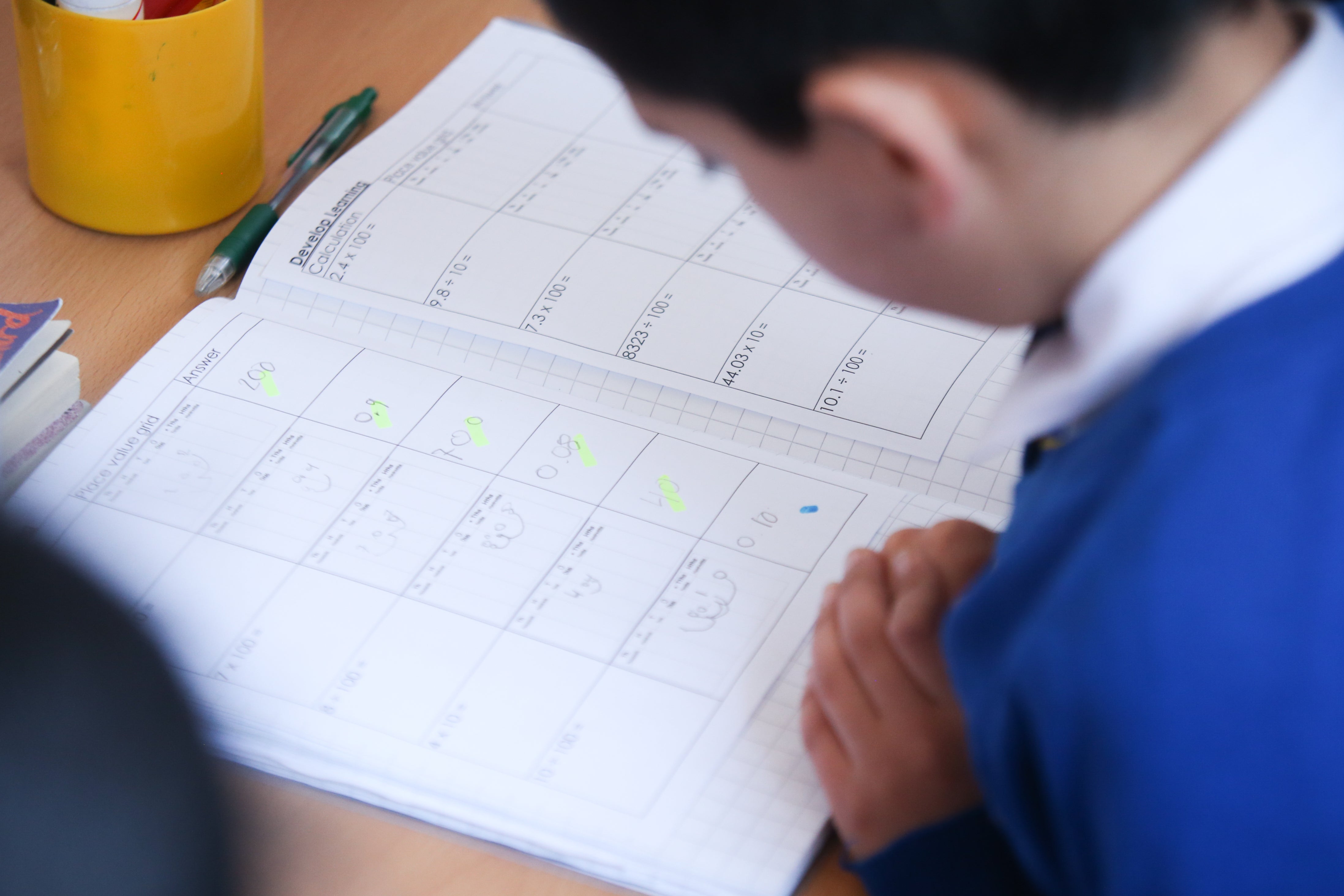Education put at risk through energy costs, say Labour
The Labour Party says school budgets are being stretched through rising heating costs.

Your support helps us to tell the story
From reproductive rights to climate change to Big Tech, The Independent is on the ground when the story is developing. Whether it's investigating the financials of Elon Musk's pro-Trump PAC or producing our latest documentary, 'The A Word', which shines a light on the American women fighting for reproductive rights, we know how important it is to parse out the facts from the messaging.
At such a critical moment in US history, we need reporters on the ground. Your donation allows us to keep sending journalists to speak to both sides of the story.
The Independent is trusted by Americans across the entire political spectrum. And unlike many other quality news outlets, we choose not to lock Americans out of our reporting and analysis with paywalls. We believe quality journalism should be available to everyone, paid for by those who can afford it.
Your support makes all the difference.Labour has said that pupils’ education is being put at risk through the Government’s “failure” to deal with school energy bills.
On Wednesday, the party said that school energy bills had doubled over the past year according to their analysis of data from the House of Commons Library, and urged the Government to ensure pupils did not miss out on opportunities because of rising costs.
Stephen Morgan, Labour’s shadow schools minister, said: “Children have already faced huge disruption due to the Government’s chaotic handling of the pandemic and now the cost-of-living crisis, made worse by Downing Street, is further squeezing school budgets.”
He added: “Ministers must get a grip and engage with schools to ensure children do not lose out on further opportunities.”
“Labour is calling on the Government to prioritise children’s learning and development post-pandemic, with breakfast and afterschool clubs, tutoring and mental health support.
“The Education Secretary must match this ambition with a proper plan to secure children’s futures.”
The data suggests non-domestic gas and electricity prices nearly doubled last year driven by a rise in the cost of wholesale gas prices.
Paul Whiteman, general secretary of school leaders’ union NAHT, said: “Rising energy costs are a huge concern for school leaders.
“Labour’s analysis shows bills doubled in 2021, which was hard enough, but the massive hikes we’re hearing about so far this year dwarf that.”
“Like every household and business, schools are facing rises in energy costs that could cripple their budgets, budgets that are already stretched to breaking point.
“The Government needs to remember that every penny diverted to paying increased energy bills is a penny that can’t be spent on children’s learning and wellbeing.
“It is pupils that could suffer if they don’t take action to help.”
Hayley Dunn, business leadership specialist at the Association of School and College Leaders, said that Labour was “certainly right to throw the spotlight on how energy costs spiralling upwards will further squeeze school and college budgets which have been under significant and continual pressure for many years”.
She added that heads were still concerned by how rising energy costs were impacting budgets which had already been stretched through inflation and pay awards.
“Education leaders are used to having to make difficult decisions on spending in order to remain financially stable.
“That was happening well before the current energy crisis and the grave state of the gas and electricity markets will be creating greater uncertainty.”
“The Department for Education has thus far shown a flagrant disregard for the genuine concerns school and college business leaders have about the significant price rises they are facing, downplaying energy costs as a small part of overall budgets.
“They may have been in the past but some schools and colleges are reporting bills that have doubled in recent months, with the very real prospect of them increasing further in the near future.
“The Government needs to recognise the seriousness of this issue and help relieve the financial pressure on schools and colleges by immediately doing more to help them meet the mounting costs of keeping classrooms lit and warm,” she said.
“Ignoring the problem will inevitably result in leaders having to cut spending in other areas of their budgets, with real consequences on the education children and young people receive.”
A Department for Education spokesperson said: “We recognise schools may be facing cost pressures in the coming months, particularly where energy prices have increased, and we are looking carefully at how these rises will impact schools and considering what additional support we could offer.
“Cost increases should be seen in the wider context of funding for schools. In 2022-23, core schools funding will increase by £4 billion compared to 2021-22 – a 7% cash terms per pupil boost – and this will help schools to meet wider cost pressures, including energy prices.
“All schools can access a range of tools to help them get the best value from their resources, including recommended deals for energy costs and services related to energy.”